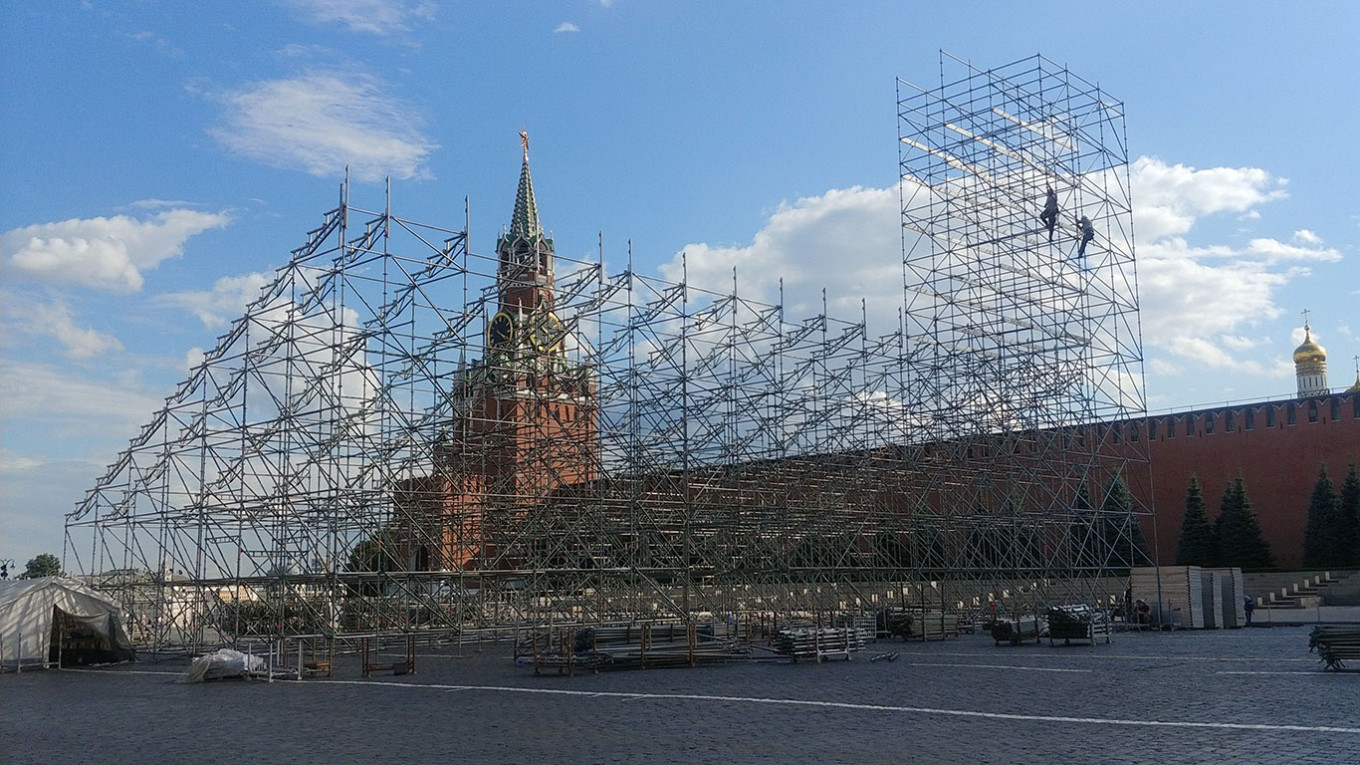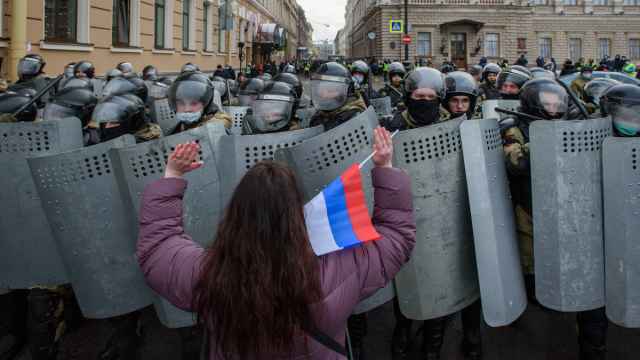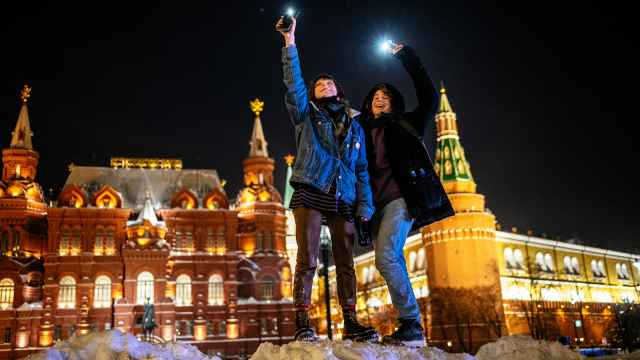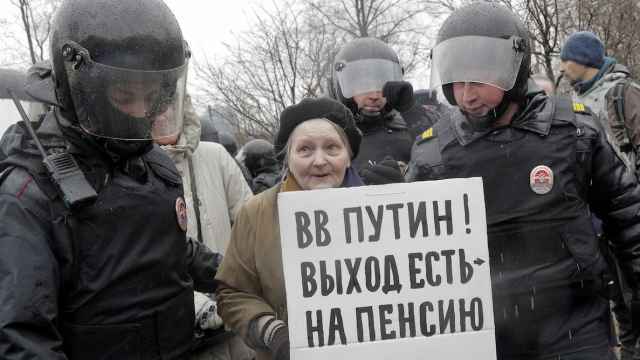Russian authorities have blocked access to exiled former tycoon Mikhail Khodorkovsky’s rights group website and news outlets, which have been critical of the Kremlin ahead of next month’s high-stakes elections.
Open Media and MBKh Media said late Wednesday that they had not been notified of the intention to block their websites by state media watchdog Roskomnadzor. Both said Thursday they were shutting down because of the move.
“The risks for the project’s employees are too high,” Open Media said in a social media post.
"This time the risks are too great — not only for journalists who worked on the resource, but also for any people who liked our content and decided to share it with others," MBKh Media said in a similar post.
A federal registry of blocked websites said the order came from the Prosecutor General’s Office, citing a law that allows websites to be blocked for inciting extremism and participation in unauthorized mass rallies.
The registry also showed that the human rights advocacy group Pravozashchita Otkrytki had been blocked by Roskomnadzor. Its lawyer Anastasia Burakova tweeted late Wednesday that the project has also shut down.
All three entities are funded by Mikhail Khodorkovsky, a former oil tycoon who moved to London after spending almost a decade in Russian prison on fraud charges widely seen as politically motivated.
Khodorkovsky launched the Open Media and MBKh Media outlets in 2017 after Russian authorities blacklisted as “undesirable” his pro-democracy NGO Open Russia, banning its activities within the country.
In a tweet reacting to his websites being blocked, Khodorkovsky urged President Vladimir Putin to “chill out” or “you’ll give yourself an aneurysm at this rate.”
He vowed last month to relocate the employees of his media projects out of Russia or close them altogether over state pressure.
The latest restrictions come days after Roskomnadzor blocked 49 websites belonging to or linked to jailed Kremlin critic Alexei Navalny and ordered Western tech giants Twitter and YouTube to block his allies’ accounts.
Critics see the moves — including blacklisting “undesirable” and “foreign agent” independent news sites and raiding and detaining journalists with increasing frequency — as the Kremlin stifling dissent in the lead-up to the Sept. 17-19 parliamentary elections.
A Message from The Moscow Times:
Dear readers,
We are facing unprecedented challenges. Russia's Prosecutor General's Office has designated The Moscow Times as an "undesirable" organization, criminalizing our work and putting our staff at risk of prosecution. This follows our earlier unjust labeling as a "foreign agent."
These actions are direct attempts to silence independent journalism in Russia. The authorities claim our work "discredits the decisions of the Russian leadership." We see things differently: we strive to provide accurate, unbiased reporting on Russia.
We, the journalists of The Moscow Times, refuse to be silenced. But to continue our work, we need your help.
Your support, no matter how small, makes a world of difference. If you can, please support us monthly starting from just $2. It's quick to set up, and every contribution makes a significant impact.
By supporting The Moscow Times, you're defending open, independent journalism in the face of repression. Thank you for standing with us.
Remind me later.






